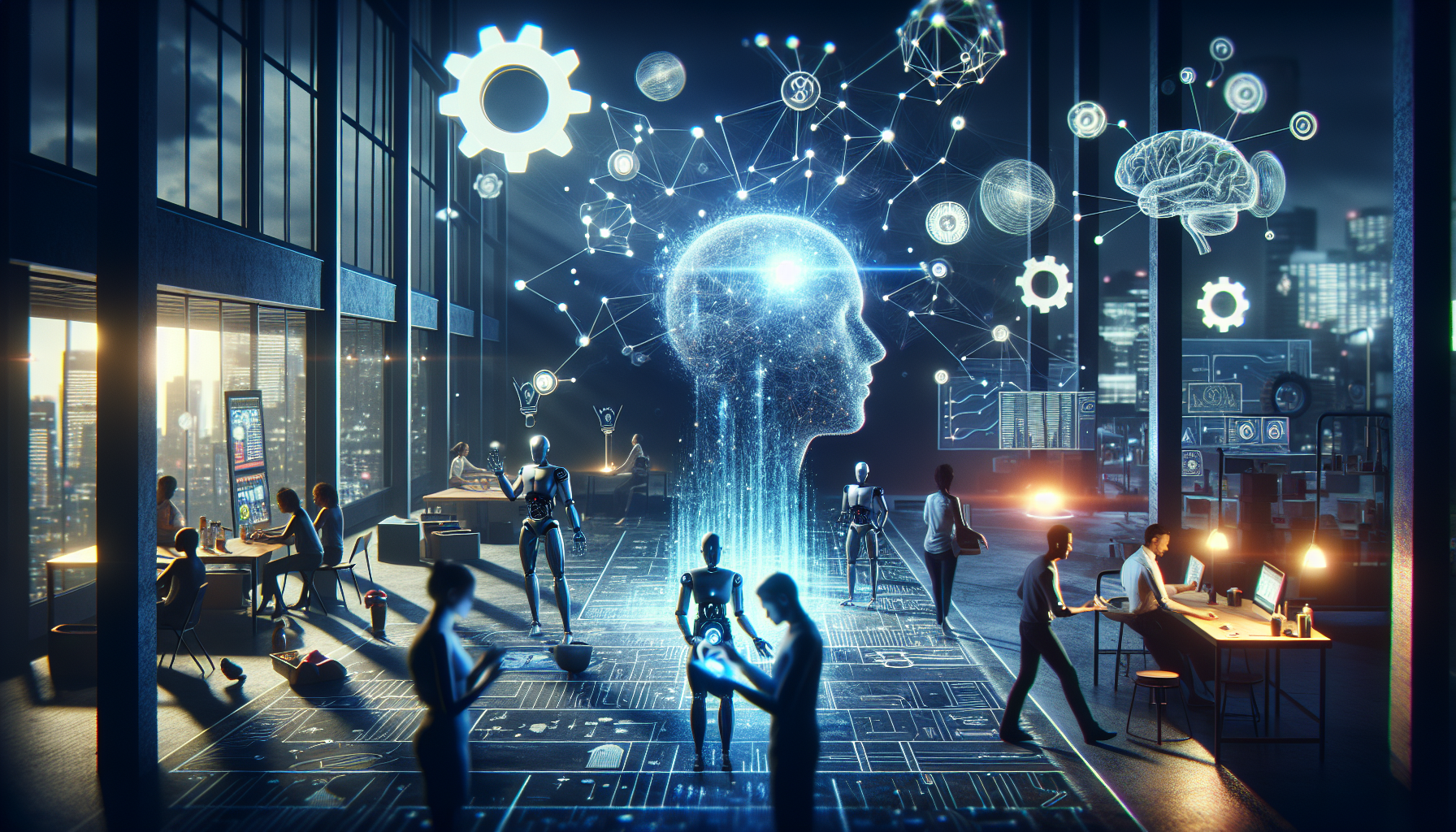AI-Powered Assistants Revolutionizing Daily Routines
How AI-Powered Assistants are Shaping Our Daily Routines As artificial intelligence continues to evolve, AI-powered assistants are increasingly becoming integral to our daily lives. These digital companions help streamline tasks, improve pr
How AI-Powered Assistants are Shaping Our Daily Routines
As artificial intelligence continues to evolve, AI-powered assistants are increasingly becoming integral to our daily lives. These digital companions help streamline tasks, improve productivity, and enhance our personal and professional experiences. From virtual help in the workplace to smart home automation, AI assistants are redefining how we manage our routines.

The Rise of AI Assistants
AI-powered assistants have surged in popularity, driven by advancements in machine learning and natural language processing. These technologies enable assistants to understand and respond to human language in a more contextually relevant manner, making interactions feel more intuitive and engaging.
Companies like Google, Amazon, and Apple have heavily invested in their AI ecosystems, integrating advanced voice recognition and machine learning capabilities into their devices. For instance, the rollout of the latest AI features in smartphones—such as Apple's iPhone 18—demonstrates a clear focus on enhancing user experience through AI innovations.
Impact on Personal Productivity
AI assistants are widely recognized for their ability to boost personal productivity. Some key benefits include:
- Task Automation: AI assistants can manage calendars, set reminders, and schedule appointments, significantly reducing the mental load on users.
- Information Retrieval: These digital helpers provide quick access to information, allowing users to ask questions and receive instant answers.
- Streamlined Communication: AI-powered systems facilitate better communication through email filtering and response suggestions, helping users to manage their inboxes more efficiently.
Many organizations are adopting these technologies to enhance remote working environments. With the onset of more flexible work arrangements, AI-driven tools enable teams to collaborate seamlessly across platforms, ensuring that everyone stays connected and informed.
Enhancing Smart Home Experiences
Beyond the office, AI assistants have transformed our home environments into smarter, more intuitive spaces. Home automation systems allow users to control lighting, heating, and security systems through simple voice commands. For example, with a verbal prompt, homeowners can adjust their thermostat or lock their doors with ease.
Moreover, the integration of AI into smart appliances continues to grow. Devices like refrigerators and washing machines are now capable of learning from user habits, optimizing energy use, and notifying owners of essential tasks—like when to reorder groceries or schedule maintenance.
AI in Health and Wellness
The health sector is also experiencing a revolution due to AI-driven technologies. Healthcare applications are utilizing AI assistants to help patients manage their health more efficiently. These tools often provide reminders for medications, help track symptoms, and even offer telehealth services, making healthcare more accessible.
With the rise of telemedicine, patients can engage with health professionals via AI-powered platforms, receiving personalized care while saving time and resources. This shift has been highlighted in various initiatives aimed at making health management straightforward and tailored to individual needs.
The Future of AI Assistants
Looking ahead, the evolution of AI assistants shows no signs of slowing down. Some anticipated trends include:
- Contextual Awareness: Future AI assistants are expected to be even more contextually aware, improving their responses based on user history and preferences.
- Integration Across Devices: As AI chipsets become more powerful, seamless integration of AI capabilities across various devices will enhance user experiences.
- Personalized Experiences: AI systems will increasingly customize interactions, tailoring information and suggestions to individual users' lifestyles and behaviors.
Such developments are set to make AI assistants not just tools, but essential partners in our daily routines.
Challenges Ahead
Despite their benefits, the rise of AI assistants also raises important challenges, particularly regarding privacy and data security. As these systems often require access to sensitive personal information, ensuring robust data protection measures is crucial. Users must remain vigilant regarding how their data is used and shared.
Moreover, the reliance on AI technology can lead to concerns about decreased human interaction. While AI can enhance productivity, it is important to strike a balance to ensure that personal connections remain strong in both professional and personal environments.
Conclusion
AI-powered assistants are shaping the future of our daily routines, influencing how we work, communicate, and manage our homes. As we embrace these technologies, they promise to enhance our lives while introducing new challenges that society must navigate. Staying mindful of privacy and the potential impact on human interaction will be crucial as we continue to integrate these tools into our lives.
Related Video
Watch here to learn more about AI-powered assistants!
Related videos: